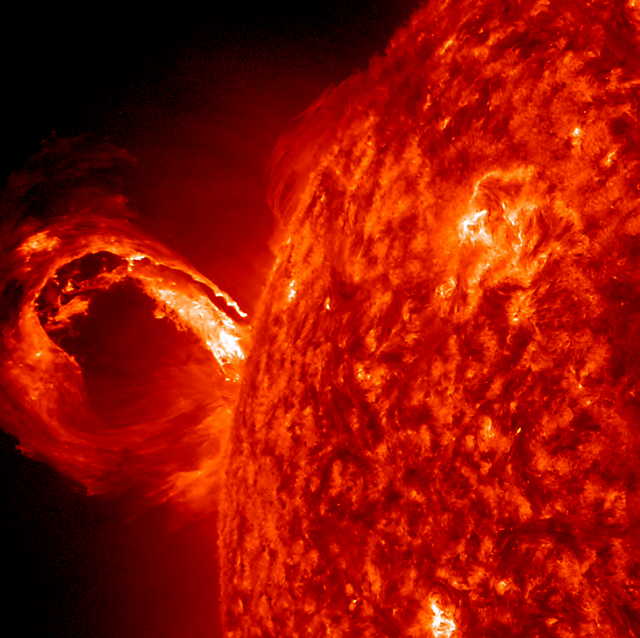Solar experts predict the Sun’s activity in Solar Cycle 25 to be below average, similar to Solar Cycle 24
April 5, 2019 - Scientists charged with predicting the Sun’s activity for the next 11-year solar cycle say that it’s likely to be weak, much like the current one. The current solar cycle, Cycle 24, is declining and predicted to reach solar minimum - the period when the Sun is least active - late in 2019 or 2020.
Solar Cycle 25 Prediction Panel experts said Solar Cycle 25 may have a slow start, but is anticipated to peak with solar maximum occurring between 2023 and 2026, and a sunspot range of 95 to 130. This is well below the average number of sunspots, which typically ranges from 140 to 220 sunspots per solar cycle. The panel has high confidence that the coming cycle should break the trend of weakening solar activity seen over the past four cycles.
“We expect Solar Cycle 25 will be very similar to Cycle 24: another fairly weak cycle, preceded by a long, deep minimum,” said panel co-chair Lisa Upton, Ph.D., solar physicist with Space Systems Research Corp. “The expectation that Cycle 25 will be comparable in size to Cycle 24 means that the steady decline in solar cycle amplitude, seen from cycles 21-24, has come to an end and that there is no indication that we are currently approaching a Maunder-type minimum in solar activity.”
The solar cycle prediction gives a rough idea of the frequency of space weather storms of all types, from radio blackouts to geomagnetic storms and solar radiation storms. It is used by many industries to gauge the potential impact of space weather in the coming years. Space weather can affect power grids, critical military, airline, and shipping communications, satellites and Global Positioning System (GPS) signals, and can even threaten astronauts by exposure to harmful radiation doses.
Solar Cycle 24 reached its maximum - the period when the Sun is most active - in April 2014 with a peak average of 82 sunspots. The Sun’s Northern Hemisphere led the sunspot cycle, peaking over two years ahead of the Southern Hemisphere sunspot peak

